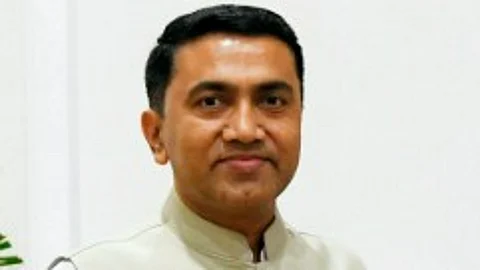

A discussion in the Goa Legislative Assembly on the implementation of the National Education Policy (NEP) 2020 sparked a detailed debate on the 1,200 annual learning hours mandated by the Directorate of Education, with the Aldona MLA questioning whether this would add to the stress and burden on students.
In response, Chief Minister Pramod Sawant clarified that the stipulated 1,200 hours do not refer solely to classroom teaching, but encompass total learning time. This includes instructional time in schools, time spent on assignments and home study, sports, arts, co-curricular engagements, and experiential learning activities.
“We are encouraging hands-on activities and project-based learning, reducing academic burden on students, ensuring a joyful, stress-free and experiential learning environment and aligning teaching-learning practices with the principles of holistic development as outlined in the NEP 2020,” Sawant said.
He also announced that NEP-aligned textbooks have been introduced for Class VI and will be introduced for Class IX from the next academic year. He added that the government is working on rationalising school hours to align with NEP goals.
Adv Ferreira, who had tabled a starred question, sought the exact bifurcation of the 1,200 learning hours and raised concerns that long textbook chapters are not being completed on time due to non-rationalised content.
The Chief Minister reassured the House that the 1,200 learning hours are in line with the National Credit Framework (NCrF) envisioned under NEP 2020. “The focus is on reducing academic pressure and promoting joyful learning,” he said, while also stating that infrastructure development is ongoing in government schools, with aided schools directed to improve facilities including toilets, rest rooms, and playgrounds.
Welcoming the move, Dattaray Naik, a headmaster from Ponda, said the government must take all stakeholders into confidence during the implementation process.
All Goa Secondary School Teachers Association (AGSSTA) president Savio Suraj Victoria remarked, “We hope that the academicians now realise that the 1,200 learning hours not only constitute classroom instruction hours but also include the time spent on assignments and home study, engagements in sports, arts, and co-curricular activities, skill-based and experiential learning opportunities, examinations, project work, bagless days and all other activities and thus rationalise school hours and limit the school classroom instruction hours in line with the NCFSE 2023 to reduce the academic burden on the students and make learning joyful.”
He further added, “This is exactly what we have been demanding from the time the government has implemented the NEP in the State. I hope the government follows Uttar Pradesh which has already rationalised their timings as per the recommendation of the NCFSE 2023 which states around 29 hours of instruction per week. The question of increasing the school hours in Goa does not arise as we are already having 34 and half hours of instruction per week and 237 working days which is way above the recommended 220 working days. I hope the government stop considering only the classroom instructional hours as 1,200 learning hours mandated by them and take appropriate decision in the interest of the students.”
“We are encouraging hands-on activities and project-based learning, reducing academic burden on students, ensuring a joyful, stress-free and experiential learning environment and aligning teaching-learning practices with the principles of holistic development as outlined in the NEP 2020,” Sawant said.
He also announced that NEP-aligned textbooks have been introduced for Class VI and will be introduced for Class IX from the next academic year. He added that the government is working on rationalising school hours to align with NEP goals.
Adv Ferreira, who had tabled a starred question, sought the exact bifurcation of the 1,200 learning hours and raised concerns that long textbook chapters are not being completed on time due to non-rationalised content.
The Chief Minister reassured the House that the 1,200 learning hours are in line with the National Credit Framework (NCrF) envisioned under NEP 2020. “The focus is on reducing academic pressure and promoting joyful learning,” he said, while also stating that infrastructure development is ongoing in government schools, with aided schools directed to improve facilities including toilets, rest rooms, and playgrounds.
Welcoming the move, Dattaray Naik, a headmaster from Ponda, said the government must take all stakeholders into confidence during the implementation process.
All Goa Secondary School Teachers Association (AGSSTA) president Savio Suraj Victoria remarked, “We hope that the academicians now realise that the 1,200 learning hours not only constitute classroom instruction hours but also include the time spent on assignments and home study, engagements in sports, arts, and co-curricular activities, skill-based and experiential learning opportunities, examinations, project work, bagless days and all other activities and thus rationalise school hours and limit the school classroom instruction hours in line with the NCFSE 2023 to reduce the academic burden on the students and make learning joyful.”
He further added, “This is exactly what we have been demanding from the time the government has implemented the NEP in the State.
I hope the government follows Uttar Pradesh which has already rationalised their timings as per the recommendation of the NCFSE 2023 which states around 29 hours of instruction per week. The question of increasing the school hours in Goa does not arise as we are already having 34 and half hours of instruction per week and 237 working days which is way above the recommended 220 working days.
I hope the government stop considering only the classroom instructional hours as 1,200 learning hours mandated by them and take appropriate decision in the interest of the students.”